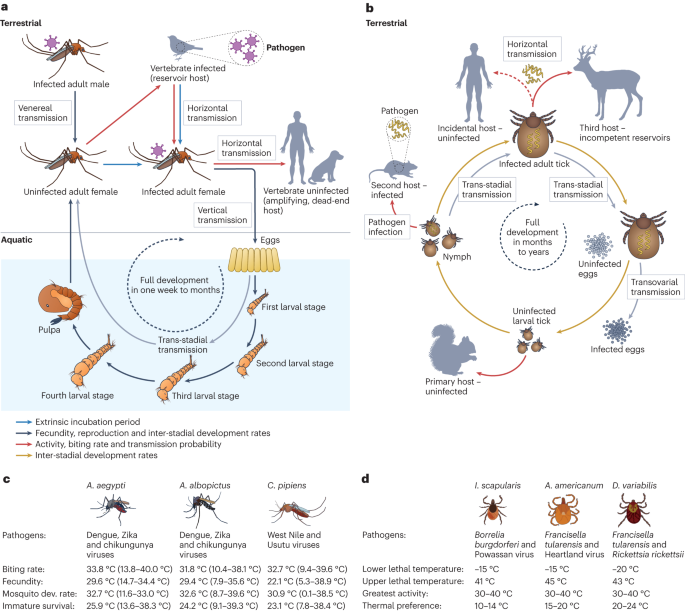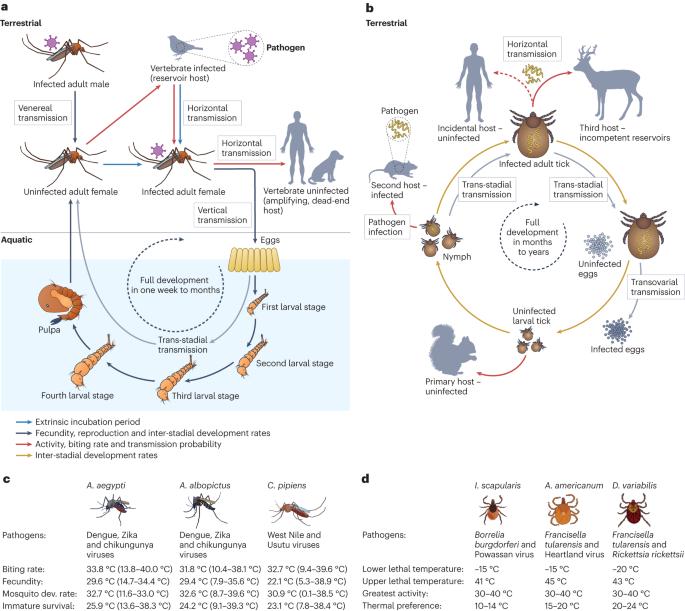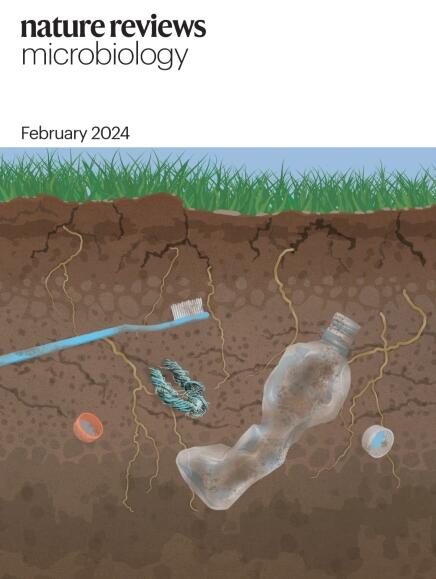Effects of climate change and human activities on vector-borne diseases
IF 69.2
1区 生物学
Q1 MICROBIOLOGY
引用次数: 0
Abstract
Vector-borne diseases are transmitted by haematophagous arthropods (for example, mosquitoes, ticks and sandflies) to humans and wild and domestic animals, with the largest burden on global public health disproportionately affecting people in tropical and subtropical areas. Because vectors are ectothermic, climate and weather alterations (for example, temperature, rainfall and humidity) can affect their reproduction, survival, geographic distribution and, consequently, ability to transmit pathogens. However, the effects of climate change on vector-borne diseases can be multifaceted and complex, sometimes with ambiguous consequences. In this Review, we discuss the potential effects of climate change, weather and other anthropogenic factors, including land use, human mobility and behaviour, as possible contributors to the redistribution of vectors and spread of vector-borne diseases worldwide. In this Review, de Souza and Weaver discuss the potential effects on vector-borne diseases of climate change, weather and other anthropogenic factors, including land use, human mobility and behaviour, as possible contributors to the redistribution of vectors and spread of vector-borne diseases worldwide.


气候变化和人类活动对病媒传染疾病的影响
病媒传播的疾病是由食血节肢动物(如蚊子、蜱和沙蝇)传播给人类、野生动物和家养动物的,对全球公共卫生造成的最大负担不成比例地影响着热带和亚热带地区的人们。由于病媒是外温动物,气候和天气变化(如温度、降雨量和湿度)会影响它们的繁殖、生存、地理分布,进而影响传播病原体的能力。然而,气候变化对病媒传播疾病的影响可能是多方面的、复杂的,有时会产生模棱两可的后果。在本综述中,我们将讨论气候变化、天气和其他人为因素(包括土地利用、人类流动性和行为)的潜在影响,这些因素可能是导致病媒重新分布和病媒传播疾病在全球蔓延的因素。
本文章由计算机程序翻译,如有差异,请以英文原文为准。
求助全文
约1分钟内获得全文
求助全文
来源期刊

Nature Reviews Microbiology
生物-微生物学
CiteScore
74.00
自引率
0.50%
发文量
149
审稿时长
6-12 weeks
期刊介绍:
At Nature Reviews Microbiology, our goal is to become the leading source of reviews and commentaries for the scientific community we cater to. We are dedicated to publishing articles that are not only authoritative but also easily accessible, supplementing them with clear and concise figures, tables, and other visual aids. Our objective is to offer an unparalleled service to authors, referees, and readers, and we continuously strive to maximize the usefulness and impact of each article we publish. With a focus on Reviews, Perspectives, and Comments spanning the entire field of microbiology, our wide scope ensures that the work we feature reaches the widest possible audience.
 求助内容:
求助内容: 应助结果提醒方式:
应助结果提醒方式:


